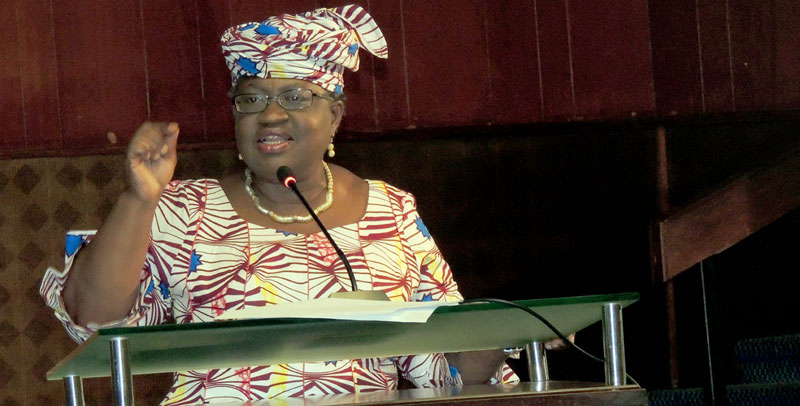News
Museveni faces acid test on limping economy
Time to make serious economic reforms – Experts say
Rising levels of poverty, low demand for goods and services are pushing families and businesses across the country to the edge. Rising levels of unemployment especially among majority young people and the recent prolonged dry spell have dealt a blow to the agricultural sector dampening prospects of a quick recovery.
But the public sector is doing apparently worse as shown by rising levels of debt, considered by many economists as unsustainable, a bloated public administration and underperformance of tax revenues in the past year.
As the possibility of government failing to meet its salary and debt obligations rises every day that passes, president Museveni has sent a warning that the he will spare no time to cut the size of civil service. But some observers say the president has pressed the wrong buttons.
He would rather have reduced the colossal expenditure in his own office – read State House that cost tax payers more than Ushs400bn last financial year. State House expenditure was more than what the government allocated to farmers under the Ministry of Agriculture.
Low demand for goods and services both in Uganda as well as in our war-prone neighbour South Sudan, has reportedly pushed many out of business or they are about to get eaten up by banks.
Some in the private sector have run to President Museveni to ask for a bailout estimated at close to a trillion shillings. But many agree that Uganda’s economy as a whole needs some level of stimulus and that bailing out a few businesses would be the wrong step.
The current economic situation is proving an acid test for President Yoweri Museveni and his government.
Burdened by a hugely unproductive and largely corrupt political and civil administration, the president is faced with an agitated army of unemployed young people, an embittered local business class disenchanted with his tax regime.
The rising unemployment crisis has met an untransformed economy that is still largely dependent on exporting unprocessed agricultural raw materials, almost similar to one he inherited 30 years ago.
Museveni’s adoption of western economic prescriptions of free market policies have largely benefited foreign companies and a few local politically connected class to ‘grab’ public assets leading to huge income inequalities.
Now however, with the outside economic environment growing increasingly hostile, experts are warning that it is time to undertake significant reforms in Uganda’s economy.
While delivering a keynote address at the 50th anniversary of Bank of Uganda Joseph Mubiru memorial lecture at Serena, celebrated Nigerian Economist Dr. Ngozi Okonjo-Iweala warned that the current economic problems affecting Uganda and other African countries are likely to persist.
She told a fully packed Serena conference hall that: “The point I wish to stress is that slowing growth and falling terms of trade may not be just a temporary rough patch. The consequences could linger especially in countries where public and private sector balance sheets have been overextended in terms of rising debt levels, worsening dynamics and currency mismatches.”
Although President Museveni had largely left the agricultural sector to its own devices and preferred to support the manufacturing sector instead, results show that this decision has greatly backfired. Agriculture has remained the dominant sector in the economy employing 76 percent of the population, though in subsistence form.
Now experts argue that the government needs to pay more serious attention to the Agricultural sector.
As Ngozi remarked: “Unlocking the potential of Uganda’s agriculture sector would also require significant improvements to rural land rights which would simultaneously increase farmers’ access to credit and investments, which in turn, would raise productivity.”
Also, investing in the right kind of infrastructure is critical- access roads connecting rural farmers to urban markets at reduced costs, irrigation to increase crop yields, improved communication technology to give farmers access to information on improved farming practices etc.”
Andrew Rugasira, whose ‘Good African Coffee’ has earned plaudits for transforming Agriculture made a more pointed critique of Uganda’s economic policies.
Rugasira argued that the government needs to overhaul its free market policies and consider propping up local entrepreneurs by enabling them access cheaper capital.
While discussing the topic of whether or not Bank of Uganda needs to change course from its strict stance on maintaining price stability, Rugasira argued that the bank needs to balance price stability with the objective of promoting growth.
At the Joseph Mubiru memorial lecture, and indeed at several recent public debates, many experts have called for a more active role of the government to support local entrepreneurs.
Rugasira and Ngozi underscored the need for the central bank to pursue its traditional role of maintaining price stability, but they noted that the central bank needs to go further by ensuring that the market does not undermine local entrepreneurs.
But the duo is hardly the first to highlight the importance of Agriculture in Uganda. The fact that it employs majority of Ugandans who reside in rural areas suggests that the government has not paid heed to the call to pay attention to the needs of young people.
But Ngozi warned: “Any nation that neglects to make employment of its youth and women a centerpiece of structural and sectoral reform is harbouring a ticking time bomb.”
Next week The Sunrise will return to this important debate by bringing you views from the experts on how the country can get out of the economic downturn.
Comments



















